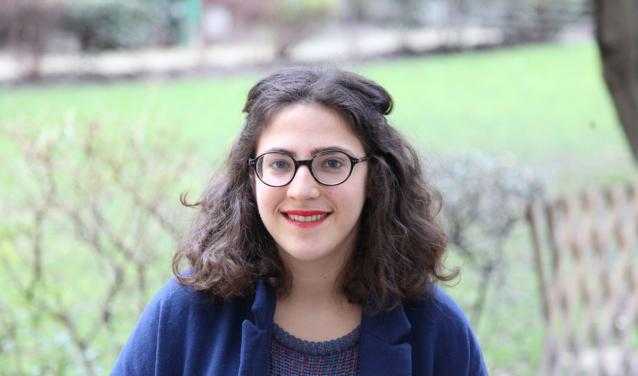Home>“Research is about rigor”

27.03.2015
“Research is about rigor”
An interview with Barbara Saden, who graduated from the Sciences Po Doctoral School with a Master in International Relations in May 2014. Her research “Punishing Syria: punishment in international relations” was awarded the Prize 2014-2015 from the Institut des hautes études de défense nationale. Although she holds a promising future as a researcher, she explains why she aims to become… a diplomat. She also discusses what she has gained from her research work.
You would like to work in diplomacy: why choose a research Master in International Relations, and how will this training help you to achieve your goals?
Barbara Saden: I was attracted to a career in diplomacy, but I wanted to prepare myself by learning about research methods. Research, it’s about rigor. It encourages the development of a solid general knowledge, because we read a lot and develop an ease and taste for writing.
And, when preparing to work in international relations, where everything is always in movement, having really studied a subject, becoming in some ways an “expert,” is a real luxury.
You chose to work on Syria and the idea of “punishment” in international relations. Why?
B.S.: I wanted a subject that would allow me to use all of the disciplines that I studied during my higher education: international relations, law, but also history and philosophy. The concept of “punishment” in international relations allowed me to do so.
Syria is an example that allowed me to question the idea of “punishing” a country. This concept was used during the debate around intervening in Syria after the chemical attack in 2013, and more recently during the crisis in Ukraine. But these aren’t the first examples: punitive discourse has reemerged many times throughout the history of the use of armed force. In studying these metamorphoses, we see that punishment is above all an effective media rhetoric. There are punitive “postures”, which have success in the media, that prove to raise awareness. But in terms of the use of force, the concept is nearly impossible to implement.
What is unique about doing research at Sciences Po? What will you take with you to the professional world?
First, working with the brilliant professors that I had at the Sciences Po Doctoral School was a fantastic opportunity. The courses and publications by Ariel Colonomos (CERI) on “just war” brought me to the concept of punishment. The guidance of Frédéric Ramel (CERI), my research director, allowed me to formulate and organise my ideas.
Finally, the label “Sciences Po” also applies to research. When you do an internship at an embassy, you realise that several generations of diplomats took Bertrand Badie’s course… and that they were regulars at Basile*. So inevitably, it creates connections.
*The cafe across the street from Sciences Po, rue Saint-Guillaume on the Paris campus.